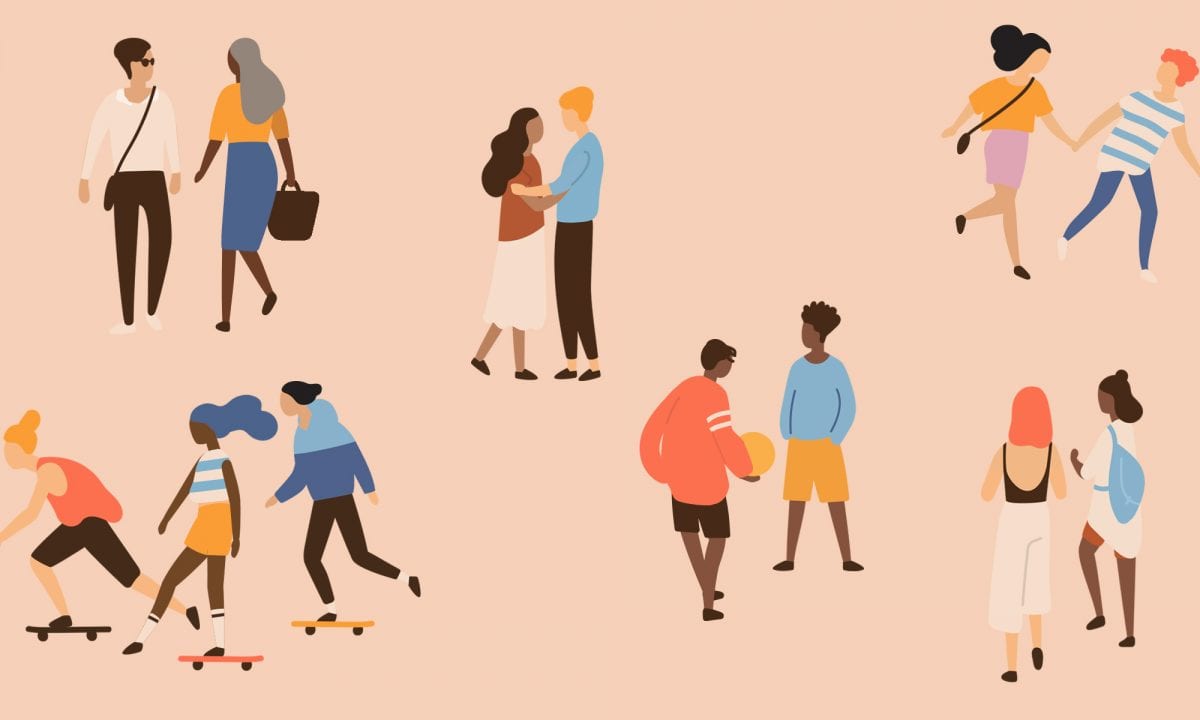Over the course of our lives, we interact with each other in order to survive and thrive. We spend the majority of our time with and around other humans. Of course this doesn’t come as a surprise because we, humans, are social creatures. For this reason, it is important to acknowledge our need to socialize that makes us long for and reach out to build relationships. In our efforts to connect with others, we soon learn that relationships are not restricted to romantic ones. Instead, there are countless kinds of relationships that include family, partners, friends, and colleagues.
We all have an inherent desire to belong and be a contributing part of a thriving community. We pursue this desire in almost every aspect of our lives, and it becomes a major driving force to build strong and pleasurable connections in all our environments. For this reason, it is extremely important to maintain positive and healthy relationships. Healthy relationships empower us, making us feel more confident, secure, and happy. These relationships often add meaning and purpose to our lives and, as a result, impact both our mental and physical health.
Since the onset of the COVID-19 pandemic, mental health has been popping up in most conversations. Considering the many stressful and uncertain situations that so many of us are dealing with, one’s mental health goes far beyond mental health issues like depression, anxiety, or a bipolar disorder diagnosis. It includes an individual’s overall mental and emotional state and wellbeing, which encompasses both positive and negative elements. Since relationships are such a vital and defining aspect of our lives, they naturally have an impact on our mental health.
Just as our physical health needs consistent care, our mental health also needs consistent and gentle support. Physical, mental and sexual health are interconnected and have an influence on each other. While there are many ways to improve physical, mental and sexual health, managing and relying on positive and healthy relationships can provide immense and comparatively quicker relief. On many occasions, we find that positive mental health factors including resilience, curiosity, and self-worth can help you cope with difficult situations and mental health issues. All these positive attributes are largely defined by our relationships. Research indicates that healthy relationships can foster good mental health, thus, resulting in lower rates of anxiety and depression, higher self-esteem, greater empathy, and more trusting and cooperative relationships.
For instance, an encouraging group of family and friends can drive you to healthy behaviors such as exercising, following a healthy diet, finding a work-life balance, and seeking professional help, if needed. On other days, a simple conversation with an empathetic loved one can relieve stress and help us to process our feelings better.
Findings from a research studying how social relationships improve mental health indicate that people with healthy, supportive relationships live longer and more fulfilling lives. Findings also indicate that people with healthy relationships tend to be less anxious, have better blood pressure, are less prone to experiencing depression and heal significantly quicker than others. It isn’t rocket science, relationships help provide people with purpose and significance. If you don’t believe us, try having this conversation again after you enjoy some activities with your friends. We already know that you’re going to experience an increase in your energy levels and find relief from your daily dose of stress.
If we can agree to nurturing our mental health, we will find that we are able to cope much better with stress and perform much more effectively. In addition, finding support from loved ones always quickends the process of recovery. The benefits are countless, you will sleep much better, and on the whole experience a healthier and happier existence.
On the whole, relationships can be extremely good for your mental health and are fundamental to living a good life. Sadly, that’s not true for all relationships. There are some unfortunate instances where relationships can be harmful for both our mental health and self esteem. There are times when relationships involve narcissist gaslighting, bullying or abuse and in all these situations, such relationships have detrimental and long lasting effects on our mental health. For this reason, it is absolutely essential to realize that harmful relationships go beyond romantic relationships.
We’ve said this before and we’ll say this again, there are countless benefits of healthy relationships for our mental health. Beyond the psychological effects, strong, healthy relationships can also help strengthen your immune system, help you recover from sickness, and even enable you to live a longer life! Nothing beats face-to-face interaction with the people you love. However, given the circumstances of the recurring lockdowns, reaching out to your loved ones over the phone or through video calls are an incredible and safe way to connect and find companionship.








